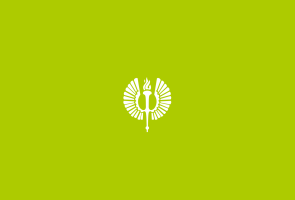A recent international study showed that higher pollen concentrations in the air correlate with increased COVID-19 infection rates. Pollen exposure weakens the response of immune system to some seasonal respiratory viruses. The effect was not connected with pollen allergy.
The study reports that airborne pollen, sometimes in synergy with humidity and temperature, explained on average over 40 % of the changes of the SARS-CoV-2 infection rate. The reaction was not immediate. In most cases, infection rates increased 4 days after the peak in pollen concentrations. That corresponds roughly to the COVID-19 incubation period.
Microbiological laboratory experiments reported in preceding publications showed that pollen itself impacts the antiviral defense of the respiratory epithelium, where the viruses attack. Pollen exposure diminishes the release of antiviral interferon. Interferons help the immune system fight the viruses. Thus, exposure to pollen can diminish the immunity against viruses.
The study also estimated effects of different lockdown measures. Without lockdown, high pollen abundance can lead to a noticeable increase of infection rates – up to tens of percent. Lockdown measures halved the infection rates under similar pollen concentrations. During a lockdown people have less exposure to both the virus and the pollen that diminishes the immune response. The study used data from 31 countries across the world.
Timely information helps in reducing exposure to pollen
– Attention should be paid to timely information on the forthcoming pollen season and days with particularly high pollen concentrations. As a practical measure, it is recommended to reduce the pollen exposure during high pollen season. Pollen exposure can be avoided by reducing the time spent outdoors during the peak pollen season or using pollen particle filtering masks outdoors, says Professor Mikhail Sofiev from the Finnish Meteorological Institute, who participated in the data analysis of the study.
– The pollen season is about to begin, and the up-to-date information on pollen quantities in the air can be found on Norkko service, a web site maintained by the Pollen Forecasting of the University of Turku. Our researchers monitor pollen quantities in the air year-round, so as soon as the first pollen grains are detected in the air, we're able to update the information on Norkko, says Adjunct Professor Annika Saarto from the University of Turku.
The study was published in highly-rated Proceedings of the US National Academy of Sciences (PNAS) in March 2021 and around 150 scientists all around the world participated in the work. From Finland, Finnish Meteorological Institute (FMI) and University of Turku (UTU), participated in the study: The FMI researchers worked in the core group as data analysts and participating in the design of the analysis, and the UTU provided the pollen data for Finland.
Pollen forecasting of University of Turku has monitored pollen quantities in the air in Finland and published pollen forecasts since the 1970's. Norkko service uses Smart-Pollen -technology, the most-advanced pollen system in the world, produced in collaboration with Finnish Meteorological Institute. The researchers at Pollen forecasting of the University of Turku widely participate in research concerning pollen and spores in the air. Valuable long-term pollen data covering several decades enables, for example, detecting and studying the impacts of climate change.
FMI, in collaboration with UTU and other institutes in Finland and worldwide, actively develops pollen modelling and monitoring technologies, recently expanding to other biological particles in the air: spores, viruses, bacteria, etc. The FMI atmospheric composition model SILAM incorporates the most-advanced pollen system in the world.
More information:
Adjunct Professor Annika Saarto, Pollen forecasting of the University of Turku, annika.saarto@utu.fi, tel. +358 50 344 5531 (aerobiology, pollen observations, Finnish pollen information and forecasting service)
Research Professor Mikhail Sofiev, Atmospheric Composition Department of Finnish Meteorological Institute, Mikhail.sofiev@fmi.fi, tel. +358 50 3290578 (pollen modelling and forecasting, data analysis, atmospheric physics and chemistry, atmospheric composition modelling)




